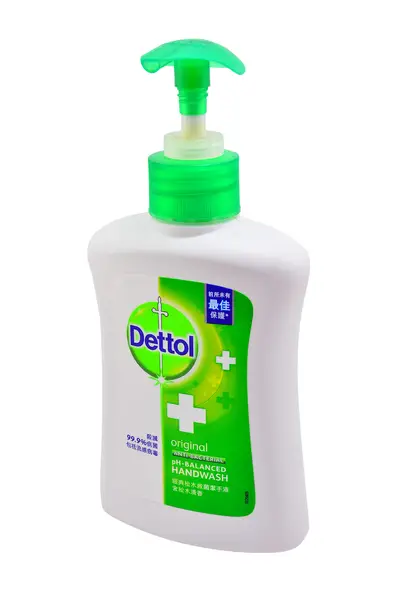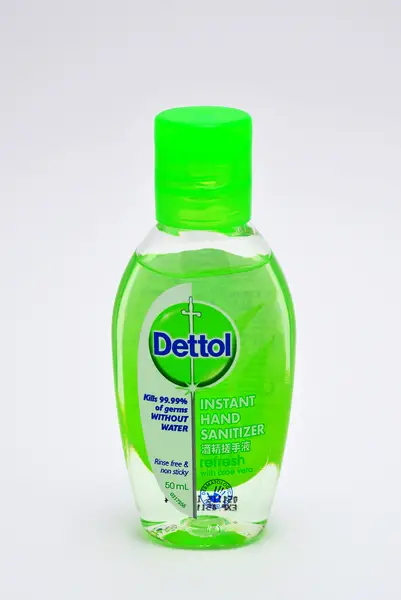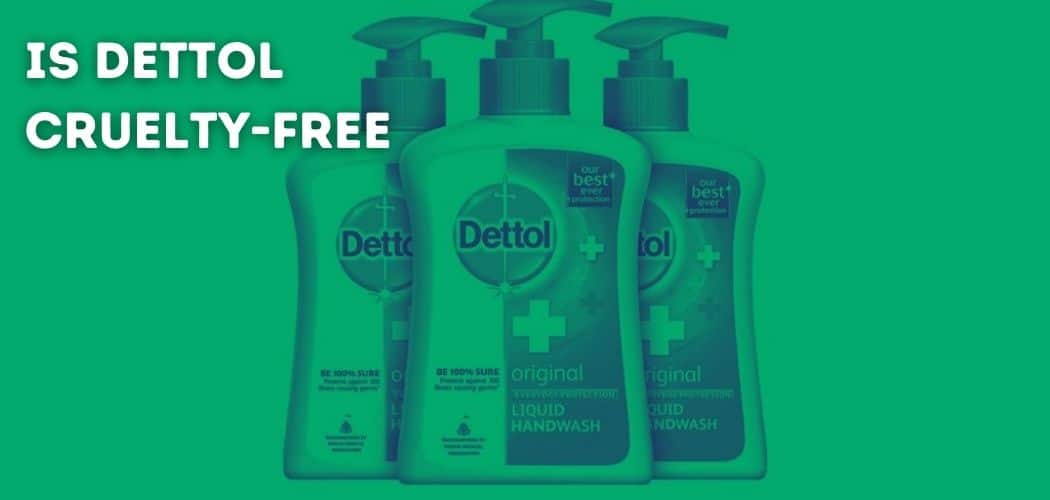You know that feeling you get when you just want to be clean? You want to feel fresh, stay healthy and enjoy each day, but there’s something else you should consider – the treatment and suffering of animals.
Dettol is a popular brand of antiseptic liquid, with a heritage stretching back to 1933. Its purpose is first and foremost to kill bacteria, with the main active ingredient being chloroxylenol compound.
In recent times, skepticism has arisen about the safety and morality of using Dettol. PETA’s guide to cruelty-free products does not list Dettol as cruelty-free. By raising awareness of the current evidence, the objective of this article is to reassure readers.
Is Dettol cruelty-free?
Dettol is not cruelty-free.
Dettol is a product of Reckitt Benckiser, which has a history of using animals for testing.
The company has previously stated that it “does not conduct animal testing on finished products or ingredients, nor commission such tests.”
However, the company did admit that it “tests products and raw materials on animals where required by law,” which includes China.
What makes the situation even more complicated is that Dettol’s parent company is involved in child labor.

Reckitt Benckiser also has a poor track record of human rights abuses and environmental protection – accused of damaging rainforests and violating workers’ rights.
In RB’s opinion, “everything has to be done according to local regulations. This may require that animal studies be conducted to demonstrate the safety and efficacy of ingredients. It is RB’s policy not to perform or commission any tests unless required by the government”.
Is it vegan-friendly?
The answer is no. Despite Dettol’s wide usage and long-standing popularity among doctors, it is not Vegan Friendly.
While the website does not specify what ingredients are included in their products, there have been reports that Dettol contains harmful toxic ingredients and animal by-products such as glycerin.
While Dettol claims to not test on animals, they have not made any effort to be considered a cruelty-free brand.
Is Dettol handwash vegan?
Unfortunately, it appears that Dettol does test on animals. It’s important to note that Dettol does not contain any animal ingredients.
However, Dettol contains artificial colors that might not suit strict vegans who avoid all artificial ingredients in their diet and lifestyle.
Why is Dettol toxic?
Dettol liquid is not toxic to humans in small amounts.
The toxicity of Dettol depends on its concentration in any given dilution solution or product formulation (the amount of active ingredient present).

Ingestion of more than 30 mL of this solution can cause severe symptoms of nausea, vomiting, and abdominal pain.
In addition to its toxicity after ingestion, this product is also toxic when inhaled or absorbed through the skin, irritating the mouth and pharynx as well as dermatitis.
Dettol has a strong odor, so overspray tends not to be hazardous unless large amounts are used in enclosed spaces such as basements or garages where ventilation may not be adequate to prevent exposure to vapors at high concentrations.
What is the active ingredient in Dettol disinfectant?
The active ingredient of Dettol is chloroxylenol (PCMX).
The primary function of this ingredient is to kill microorganisms such as bacteria, viruses, fungi, and protozoa.
Chloroxylenol also has a mild antibacterial effect on human skin but does not irritate the skin or mucous membranes when used in a small amount.
However, Chloroxylenol is toxic to both humans and animals, especially dogs.
When in contact with their skin or coat, it may irritate their skin or eyes. If ingested, it may also irritate their respiratory tract.
Is Dettol poisonous to dogs?
Dettol contains Chloroxylenol, which is toxic to dogs. The dog’s sense of smell is very strong, and they are attracted to the pleasant smell of Dettol.
The consequences of ingesting Dettol by a dog can range from vomiting, diarrhea, weakening, difficulty breathing, and seizure disorders.
Is it ethical?
A brand that is ethical, or at least tries to be, has certain qualities. It should:
- Not involved in animal testing where required by law.
- Be free from child labor.
- Achieve fair trade certification for its products and services.
- Avoid genetically modified ingredients (GMOs) and unsustainable farming practices.
Dettol is accused of performing animal testing where it is required by law.

They are not against animal testing on ethical grounds; they just want to ensure that the products are safe for humans to use. And that is unethical.
Reckitt Benckiser, the parent company, also engages in child labor.
The company has been criticized for using child labor in the production of its products and for using forced labor. This is another unethical practice.
Conclusion:
While some might argue that it is not possible to be 100% cruelty-free, and this directive is largely a myth.
I believe that it is still possible to live a cruelty-free life without neglecting your basic hygiene and health needs.
We hope that the information above has proved helpful in allowing you to make an informed decision and will help reduce any confusion around what constitutes cruelty-free living and what doesn’t.

